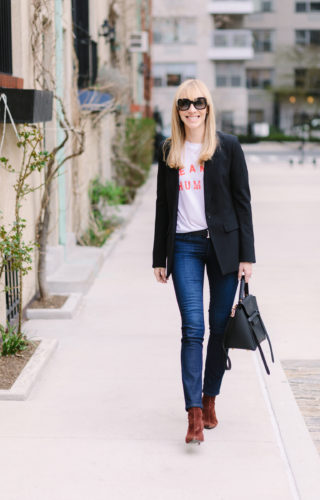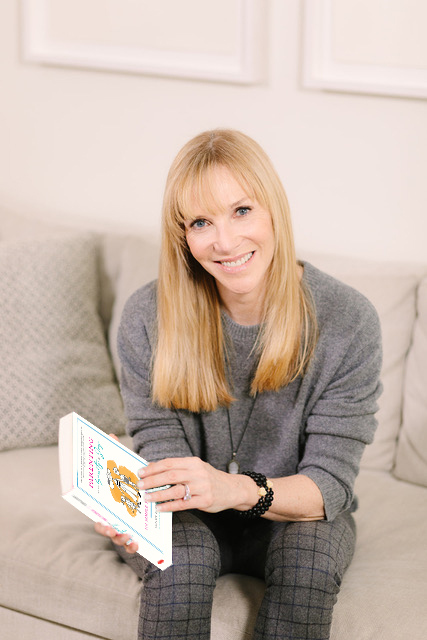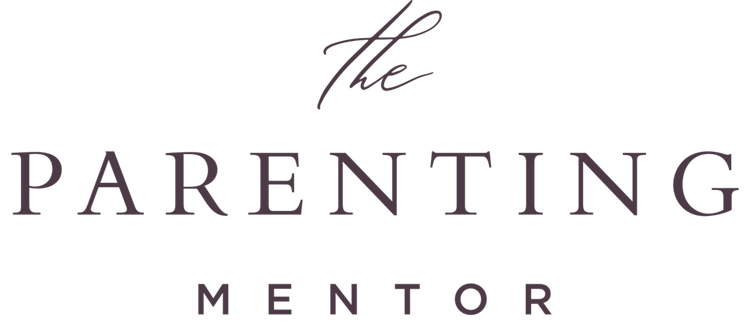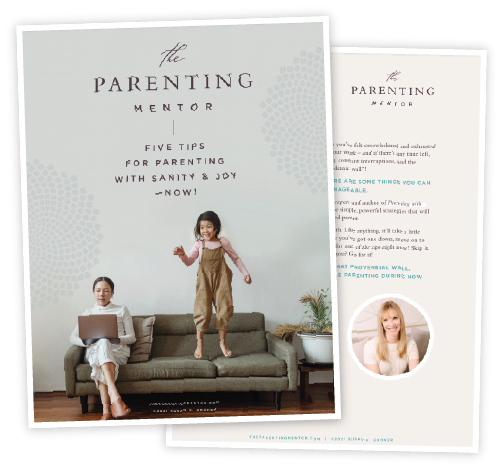MEET SUSAN G. GRONER
THE PARENTING MENTOR, AUTHOR + MOM


By the time I had children, I had already fulfilled many of my professional ambitions. With an undergraduate degree from University of Pennsylvania’s Wharton School, I started working in advertising and marketing. I loved being able to apply creative problem-solving to a client’s business problems.
Then I had kids, and I felt like I didn’t have a single problem-solving muscle in my body. Like many of my the mentoring clients I now work with, I found child-rearing alternately exhilarating, frustrating, rewarding, maddening, relaxing, and the hardest thing I’ve ever done. This is because children are unpredictable; they rarely work off the script you’re expecting or hoping for.
As I became more steeped in motherhood, I began to pay attention to exactly what would trigger our family stress. Untidy living space…difficult meals…my distaste for the role of Homework Police. And I wondered whether I could approach some of my challenging parenting situations in the same way I had in my business life—as a creative problem-solver.
I started by asking myself the same question I’d ask my advertising clients: What were my goals? Of course I wanted my family to be “happy” and my children to be “good” and “successful.” But what exactly did that mean?
I discovered that my hope was not simply for my children to “get into a good college,” but more specifically that they would become resilient, self-reliant young adults with plenty of their own problem-solving skills and coping mechanisms.
I started small, using a forgotten musical instrument as an opportunity for my daughter to solve a problem on her own. She did, and with that I started to look at my own role differently. Suddenly, all my “parenting challenges” became “opportunities” for my kids to develop some of the characteristics I hoped for them. Many of the techniques I used were approaches I’d call upon to make my days at the ad agency run smoothly: active listening, empathy, and making sure everyone’s needs and expectations are known.
Obviously, not everything worked perfectly 100% of the time, but even when it didn’t, I started looking at the results as yet another opportunity for all of us to learn from each other. And I became a happier, less-stressed parent almost immediately.
For years, when my friends would ask for parenting advice, I would offer them some of my (now) tried and true alternatives. They’d come back to me and insist I should do this for a living. The seed was planted.
But it wasn’t until a young friend who’d just had her first baby called and said, “I don’t know what I’m doing—would you consider mentoring me?” that I actually decided to make it official.
I call myself a Parenting Mentor because, for me, a mentor was the most valuable tool I ever had in developing the skills I needed to be successful in my work. My mentor was the person who would support me in trying to attain my goals, speak to me (kindly!) when I failed, and help me figure out how I might approach a similar goal more effectively next time. She was a person who had been there/done that and had a good idea what might work and why. Under the guidance of my mentor, I had far fewer crises and many more successes than when I was trying to figure it all out myself.
My children are now young adults, confident in their ability to navigate their own lives. That’s been a rewarding goal to attain. But more importantly, I’ve learned how to let go of much of the stress that seems inherent in parenting, and it’s allowed me—and the people I work with—to truly enjoy the process of childrearing.



